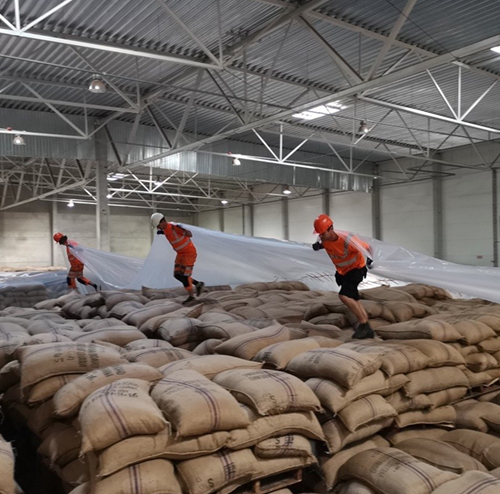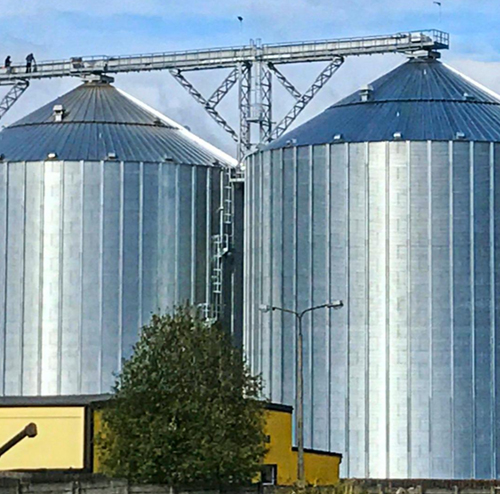In India, post-harvest storage predominantly takes place in warehouse facilities. Many exporters have recognized the cost-effectiveness and reliability of warehouse storage, incorporating it into their supply chain to extend product shelf life and maintain quality.
Warehouses offer the advantage of flexible storage options for a wide range of commodities. However, effective fumigation in warehouse settings requires a tailored approach based on the type of cargo stored. At Rqube Facilitators, we combine Integrated Pest Management (IPM) with precise fumigation practices to protect and preserve the quality and integrity of stored goods.
Fumigation within a warehouse is conducted in designated treatment zones or quarantine areas, clearly marked with caution signage restricting entry to unauthorized personnel. A minimum clearance of 3 feet around the treatment perimeter is maintained to ensure safety and effectiveness.

Cargo designated for fumigation is carefully stacked and sealed using specialized fumigation sheets and sandbag barriers to create a gas-tight enclosure, minimizing fumigant loss. Gas concentration levels are continuously monitored throughout the exposure period at predefined intervals to ensure the fumigation is both safe and effective.
Following the exposure period, the area undergoes a controlled aeration process by trained professionals. Once the enclosure is certified gas-free, the cargo is ready for container stuffing or can be transferred to areas designated for non-infested or treated goods.
With our structured protocols and expert team, Rqube Facilitators Pvt Ltd ensures that warehouse fumigation is safe, compliant, and highly effective in maintaining cargo quality.

At Rqube Facilitators, we bring specialized expertise in silo fumigation, currently managing silo operations across multiple regions in India. Silos play a crucial role in post-harvest grain storage, directly influencing supply stability and profitability in the agricultural value chain.
Effective fumigation, supported by well-maintained storage infrastructure, significantly enhances the shelf life and quality of stored grains. Critical factors such as grain breakage, moisture levels, and pest control are closely monitored to ensure optimal storage conditions.
Regular structural audits and inspections are essential before every harvest season, as the physical integrity of a silo impacts fumigation success. A well-maintained silo ensures accurate dosage, proper gas retention, and minimizes leakage, allowing precise CT (concentration-time) and exposure periods.
Unlike fumigation in stacks or containers, silo fumigation involves complex variables. Factors such as silo type, cone structure (single/double), cone positioning (above/below cylinder), and the nature of the stored commodity all influence gas retention and efficacy.
In addition to fumigating stored contents, we also emphasize the importance of Integrated Pest Management (IPM) practices. Measures like bird-proofing and rodent control not only protect the grain but also prevent structural damage and reduce the risk of attracting secondary infestations.